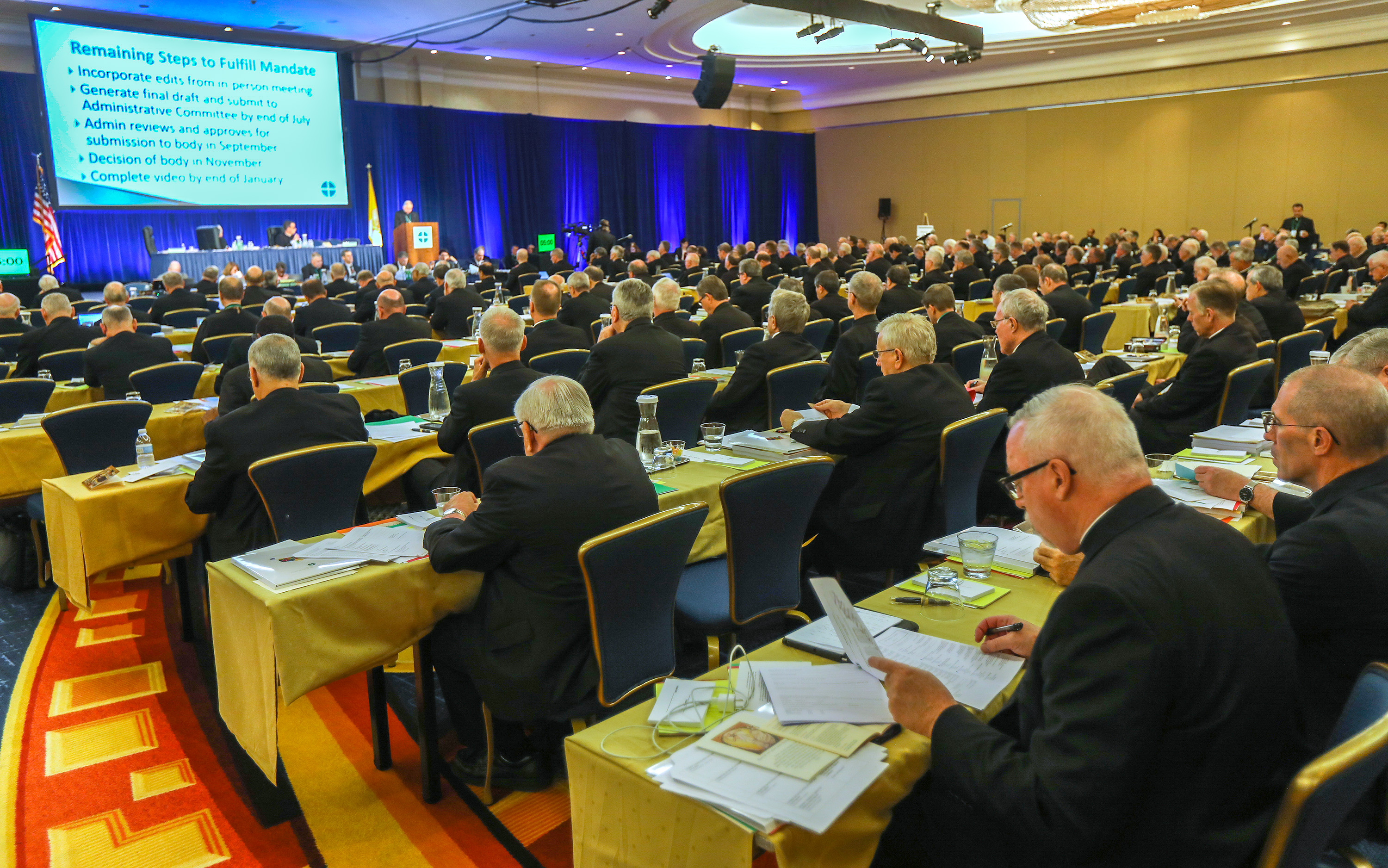SPECIAL TO THE MESSAGE
The Spring General Assembly of the U.S. Conference of Catholic Bishops resulted in significant steps to hold bishops accountable for instances of sexual abuse of children or vulnerable persons, sexual misconduct or the intentional mishandling of such cases.
The bishops overwhelmingly approved three documents regarding reporting and investigating claims of abuse or the intentional mishandling of cases by bishops. They also voted to establish a national third-party reporting system to simplify the reporting of certain complaints against bishops.

Bishops had been set to act at their November meeting on these critical issues in response to claims against former Cardinal Theodore McCarrick and the release of a Pennsylvania grand jury report. However, the Vatican requested a delay in action so that the worldwide Church could move forward as one body against the scourge of clergy sexual abuse.
To this end, Pope Francis called together in February the presidents of bishops’ conferences from around the world for the “Summit on the Protection of Minors in the Church.” On May 9, Pope Francis released the motu proprio “Vos estis lux mundi” (“You are the light of the world”), which reflects the input and dialogue that occurred at the summit and establishes new norms to be implemented by the various bishops conferences.
In accord with the motu proprio, the “Directives for the Implementation of the Provisions of Vos estis lux mundi” approved by the bishops in Baltimore provide for complaints of sexual abuse against bishops or of a bishop’s mishandling of claims against others to be investigated initially by the metropolitan archbishop of the ecclesiastical province in which the bishop serves. Should complaints be made against the metropolitan archbishop, they would be investigated initially by the senior suffragan bishop in the province. The motu proprio includes “whistleblower” protections for those making claims.
The Directives provide for the metropolitan to designate a layperson to receive any allegations against bishops and for that person to assist the metropolitan in his initial responsibilities in regard to the allegations. Upon reception of a complaint, the nuncio is to be notified, and he forwards the allegation to the competent dicastery (department) at the Vatican. If required by civil law, a report is to be made to law enforcement by the metropolitan. Provisions are also to be made to offer pastoral care to those who state that they have been harmed. Once the allegation is received, the Vatican dicastery is to promptly (within 30 days) provide the appropriate instructions on how to proceed with the case. Once authorized by the Holy See to conduct an investigation, the metropolitan should appoint a layperson as an investigator. Laypeople from various fields can also be utilized to assist in an investigation and assessing the results. At the completion of an investigation, usually within 90 days, the Metropolitan is to submit his findings and a report of the investigation to the Vatican dicastery. If the allegations are determined to be credible, only the Pope has the authority to determine punishment.
The bishops also approved the document “Affirming our Episcopal Commitments” in which they place themselves under the same high standards applied to priests, deacons and lay personnel included in the “Charter for the Protection of Children and Young People” and renew their commitment to respond openly, directly and appropriately to allegations of clergy sexual abuse and sexual misconduct, and to reports of mishandling such cases by bishops.
In addition, they voted to adopt a “Protocol Regarding Available NonPenal Restrictions on Bishops” that specifically outline the restrictions that can be imposed on a bishop who was removed or resigned for committing sexual abuse himself or was “gravely negligent” in responding to sexual abuse claims against priests, deacons or lay personnel.
Following the motu proprio, the bishops also voted to establish a national third-party reporting system for complaints against bishops that will supplement existing reporting channels, which include law enforcement, the local metropolitan archbishop or the Vatican’s Apostolic Nuncio to the U.S. The USCCB will contract with an outside agency for the hotline, and plans to have the new system up and operational as soon as possible, but not later than the end of May 2020. The new system will enable reporting across the country.
In taking these actions, the bishops have eliminated the “gaps” in protections offered by the Charter and Essential Norms, and they have taken steps to build on the success of these policies since their implementation in 2002.
The bottom line is that, taken together with Pope Francis’ Motu Proprio, the Directives, the Commitments, Protocols and third-party reporting system approved by the bishops lay the foundation for unprecedented accountability of the hierarchy at every level of the U.S. Church.
